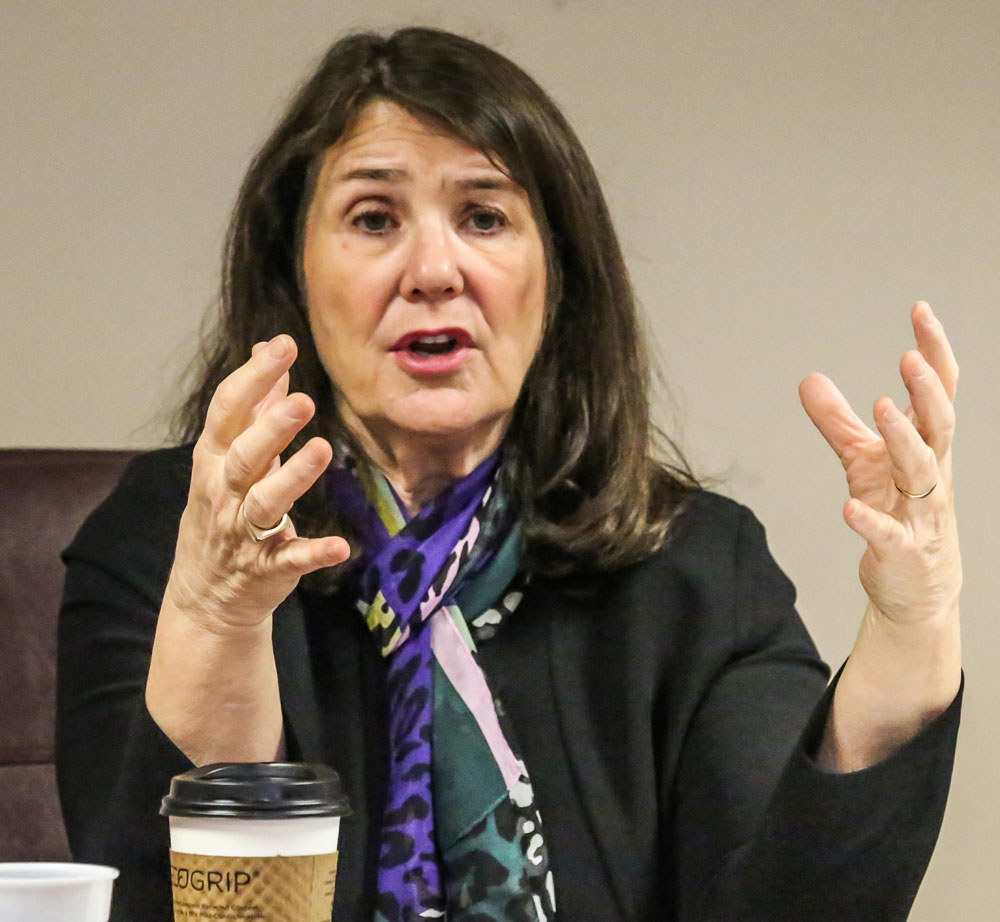
US Rep. Diana DeGette
The Front Porch interviewed Rep. Diana DeGette in mid-May, the day before she returned to Washington, DC to vote on the new $3 trillion HEROES Act, a stimulus package that addresses some of the gaps in the CARES Act.
Q: What are your thoughts on the recently introduced bipartisan bill [HR6808] to fund a new national public health corps?
A: I’m supporting this bill…what it would do is ramp up a national public health corps of people who could help set up a national program for contact tracing and for treatment for Covid and then follow it through. That’s going to take hundreds of thousands of workers…to help bring the virus under control, including all the Peace Corps volunteers who were recalled and then so many people who have lost their jobs.
Q: You have been vocal in advocating for a national contact tracing strategy. Has there been any progress?
A: Unfortunately, I’ve seen no movement on the part of the Trump administration to undertake this at the national level, and most public health experts insist that this is what we need to do to bring the country back safely. We could do this through the Centers for Disease Control (CDC) and in partnership with the state health departments. You could set up a program where you had the national health corps trained by protocols set forth by the CDC. They could be deployed to states, where they could work in partnership. The problem is if you have 50 different states’ solutions, and people move from state to state; so we have to try to control this outbreak everywhere…We have had to devolve to state and local government cobbling it together…Congress has been appropriating money, but what we really need is leadership from the executive branch in helping set some of these policies.
Q: How do we best balance the need for economic stability and the need for safety?
A: This is not some philosophical debate we’re having. This is science. So the problem is if you don’t have the ability to do testing and contact tracing and isolating, every scientist says we’re going to see another upsurge, if not this summer then in the fall. So we do have to reopen our economy, but we have to do it in a way that protects the health of Americans.
The good news is because of the phenomenal commitment of the American citizens, we have now flattened the curve, and it’s starting to go down. In Colorado, we actually are below the new infection level that we would need to see to start reopening. What we need to do now is identify the hot spots [meatpacking plants, senior centers, prisons and jails] and have the ability to test everybody on a regular basis. Then if we see other hot spots creeping up, we need to be able to do the same thing. I believe that within the next month or so, we will get there.
Q: President Trump recently said, “We have met the moment and we have prevailed.” Dr. Fauci and Dr. Redfield testified before the Senate the following day, and they gave a different assessment. Do you see any common ground between the two sides?
A: I don’t really see this as two sides, I’ve got to say. Most of the Republicans that I know also agree with science. There’s a lot of bipartisan agreement on this. Where we have difficulty frequently is with the White House; I think President Trump is more concerned about his poll numbers, and he’s worried about the economy. We’re all worried about the economy, but the scientists say if you don’t open up the economy in a way that’s safe, you’re only going to have a worse rebound and a worse economic impact, not to mention the health consequences later in the summer or the fall.
Q: How do you see the pandemic impacting the election, either in terms of outcomes or how it is run?
A: Number one, we are having an election…it’s in the Constitution. Number two, some of what we’re pushing for in our latest bill [the HEROES Act] is money to be able to expand voting so that it will be safe. And of course, Colorado is in good shape because we went to mail-in ballots a few years ago, but other states need to be able to loosen their restrictions on mail-in ballots. It’s really important that we conduct the election this fall and it’s really important that we make sure everybody who’s eligible to vote can vote. I do think it’ll hurt President Trump’s chances, but he still has a strong base so people will have to be active.
One thing that the coronavirus crisis has shown us is that Americans need quality health care. Support for the ACA [Affordable Care Act] is going up dramatically and of course Senator [Cory] Gardner voted to repeal the ACA, so I think that’ll be a big issue in the fall.
Q: If historians in 30 or 40 years write about this election or this period, what kind of systemic changes do you think they might write about?
A: I would hope that this period will teach us the importance of national leadership and strong federal-state partnerships.
Q: What gives you optimism?
A: I actually am optimistic because I see Americans being willing to shelter at home for two months or more because they were told that would help save those who were vulnerable. It’s extraordinary. The commitment of people on the front lines—not just medical providers, but grocery store workers and delivery drivers and firefighters and paramedics, so many people—has been unbelievable. And then the way people have taken care of their neighbors is just fantastic, so I’m hoping that we will retain those values as we go forward.
Rep. DeGette’s comments were edited for length and clarity.



0 Comments